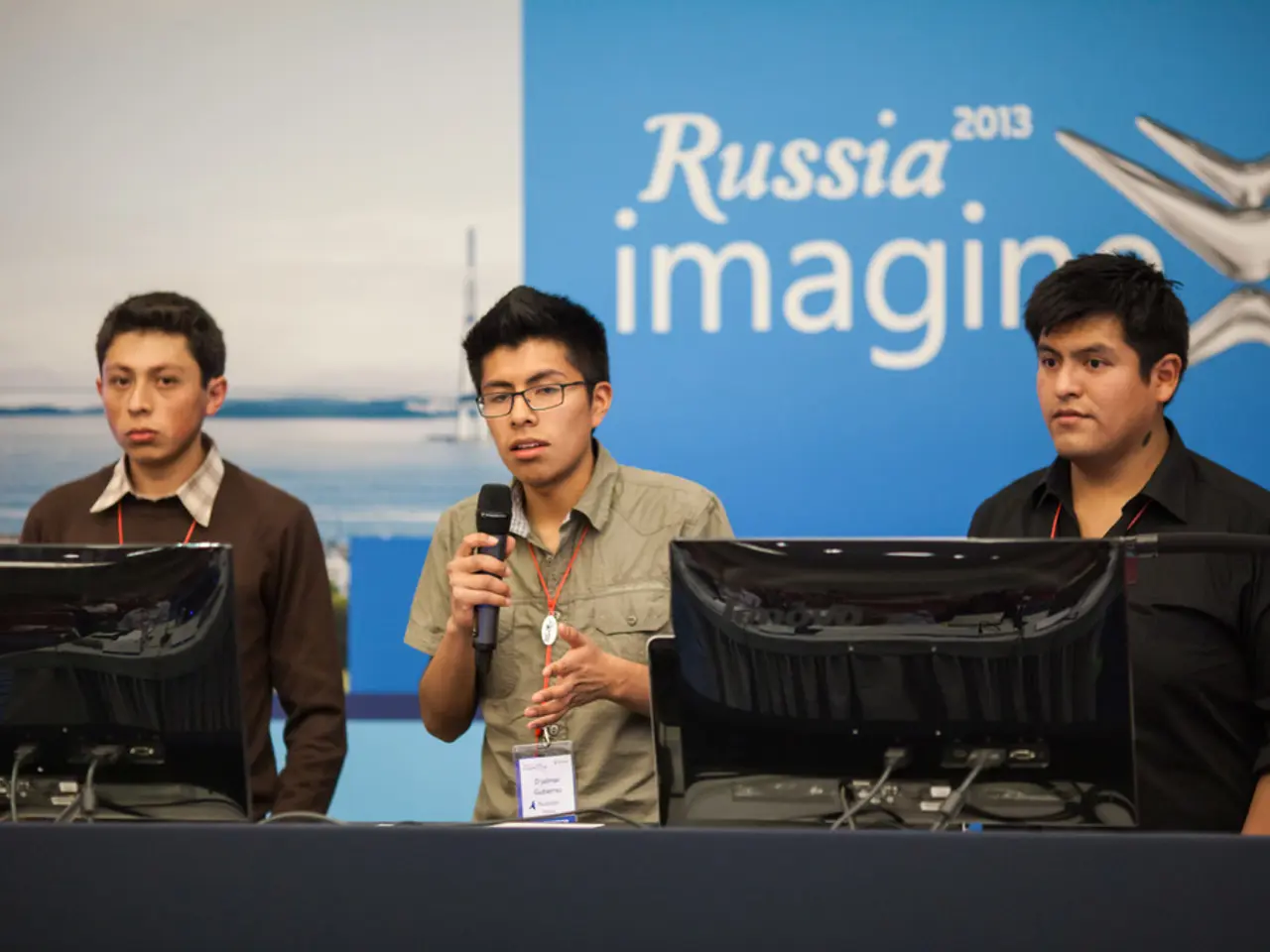Tech giant Nvidia pumps $5 billion into Intel's coffers.
In a move that could signal a shift in the tech industry, Intel and Nvidia have announced a partnership to develop cutting-edge chips for data centers.
The ambitious plans by Intel to build new factories have been scaled back, with the company now focusing on becoming a contract manufacturer for other chip companies. This strategic shift comes as Intel struggles to keep up with Nvidia in the artificial intelligence (AI) sector.
Originally, the US government had promised billions in subsidies to Intel to support the construction of new factories in the US. However, it appears that US President Donald Trump wanted something in return for the subsidies, and the billions served as the purchase price for the government's stake in Intel, which now stands at around 10 percent.
The partnership between Intel and Nvidia will see the two companies collaborate on developing chips for Intel's X86 system. These processors will be adapted to Nvidia's data center technology, making them ideal for AI-based software.
Nvidia's chip systems are crucial for the operation of AI-based software, and the company has seen explosive growth as a result. Previously known mainly for its graphics cards, Nvidia is now the world's most valuable company, with a current market capitalization of $4.3 trillion.
The partnership between Intel and Nvidia has been met with enthusiasm, with Intel's stock price jumping by around 28 percent in US trading at one point. However, potential customers have been hesitant so far regarding Intel's plans.
Meanwhile, other players in the AI chip market are also making moves. The Technical University of Munich (TUM) plans to develop AI chips through its new center, MACHT-AI, starting in 2026 using TSMC's 16-nm and 7-nm technologies. Huawei is also actively developing AI chips with its own Ascend processor line, aimed at reducing reliance on NVIDIA chips, and targeting a market release in early 2026.
Nvidia CEO Jensen Huang has stated that the partnership with Intel indicates a fundamental change in the computer world. Intel, on the other hand, is facing a crisis, as indicated by the need for external funding and technical cooperation. The planned plant in Magdeburg has been scrapped, further highlighting Intel's struggles in the chip industry.
Intel's loss of influence in the chip industry is evident, with smartphones and most tablets running on technology from chip developer Arm. This partnership with Nvidia could be a step towards regaining some of that lost ground for Intel.
In conclusion, the partnership between Intel and Nvidia is significant, and could have far-reaching implications for the tech industry. As AI continues to grow in importance, companies like Intel and Nvidia will play a crucial role in shaping the future of this technology.
Read also:
- MRI Scans in Epilepsy Diagnosis: Function and Revealed Findings
- Hematology specialist and anemia treatment: The role of a hematologist in managing anemia conditions
- Enhancing the framework or setup for efficient operation and growth
- Hydroelectric Power Generation Industry Forecasted to Expand to USD 413.3 Billion by 2034, Projected Growth Rate of 5.8% Compound Annual Growth Rate (CAGR)







